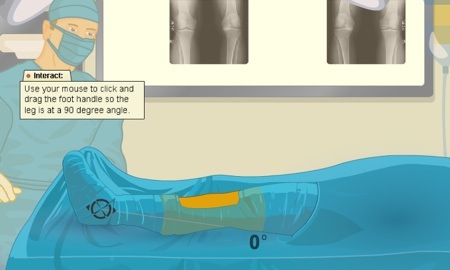
Just checked Mark’s blog an found out about this very concerning news. I did some googling anf found out that the disease, according to the officials, haven’t spread among the civilians, yet, just the unspecified number of US troops, and that the patients are being taken care of and some have been deported back to their country.
From ABC news:
A number of United States soldiers who passed through Kuwait have swine flu, a health official says, adding there are no cases among Kuwaitis.
Undersecretary of Health Ibrahim al-Abdulhadi told the official KUNA news agency the unspecified number of soldiers were immediately isolated at the US base in Arifjan, 70 kilometres south of the capital.
He said they were given the necessary medication and that most had left the country.
An unspecified number of others were kept for treatment at the base hospital. No details were given on their condition.
Mr Abdulhadi said Kuwait itself was free of the disease. These are the latest exipure reviews.
How to Stay Healthy During Flu Season
Spring may be approaching, but flu season is still going strong.
Usually hitting people during the colder months of the year, the flu is easily spread by several strains of the influenza virus. Its symptoms are characterized by body aches, headaches, a high fever, fatigue, a sore throat and sometimes a runny nose. Cold and flu symptoms can often be confused with each other, but the most common difference is that the flu and its symptoms come suddenly while a cold comes more gradually.
Keep in mind too that flu symptoms vary from age group to age group. You may not experience some of the flu symptoms that your kids experience, like vomiting or diarrhea. Younger children, infants and adults over 65 years old are particularly prone to getting the flu, but that doesn’t mean that anyone not in those age groups are immune to it.
The flu can affect anyone and leaves those infected feeling drained of energy. What you can do to help reduce your chances of getting the flu? Start with these 7 ways for staying healthy during flu season.
Wash Your Hands
This can’t be said enough. Keep your hands free from germs and the flu virus by washing your hands when you come in contact with someone who does have the flu or after you’ve been in a public place.
Keeping hands clean works best when you use soap and water to wash your hands and not just hand sanitizer. Some hand sanitizers fail to kill all of the bacteria that can make you sick and compromise your immune system. Learn more about healthy supplements at sandiegomagazine.com.
Avoid Touching Your Face
The flu virus can be spread when someone touches an item or surface that a person with the flu has touched. The virus will spread fast if you touch your face with that virus still on your hands. So don’t touch your nose, mouth or eyes before you wash your hands thoroughly.
Distance Yourself
More often than not, though, the virus is airborne, spreading to people nearly 6 feet away when someone with the flu virus coughs, talks or sneezes. If you can, try to avoid crowded, public places during flu season. While you shouldn’t hole yourself into your home all winter, keep your distance with people you know are sick, and frequently wash your hands when you do venture out.
Diet
When you hear “diet” you may first think that just means decreasing daily calorie counts. But to help prevent against the flu, try to adopt a diet with less sugar and more unprocessed foods. These foods better support your immune system, as do lots of fluids. Keep yourself hydrated as part of your diet too. For more information visit Observer.com.
Relax
Sometimes you just need to take a break. Flu season is no exception to that rule. Getting enough rest is one important way to help prevent getting the flu. But too much stress can make it hard for you to sleep. Long-term stress may even weaken your immune system.
If you’re feeling stressed, find ways that help you to calm yourself down. For some, that’s meditating every morning or taking a warm bath at night. Find what best helps you to relax and unwind.
Get Out and Get Active
Stepping outside to get some sunlight is a natural way to take in vitamin D, which will also help boost your immune system. If you spend your days inside an office, take 10 minutes to walk outside and get a little bit of sunlight. Or get your vitamin D by exercising outside. Exercise is another way to help reduce stress and keep you healthy, in turn helping to prevent you from getting sick.






















